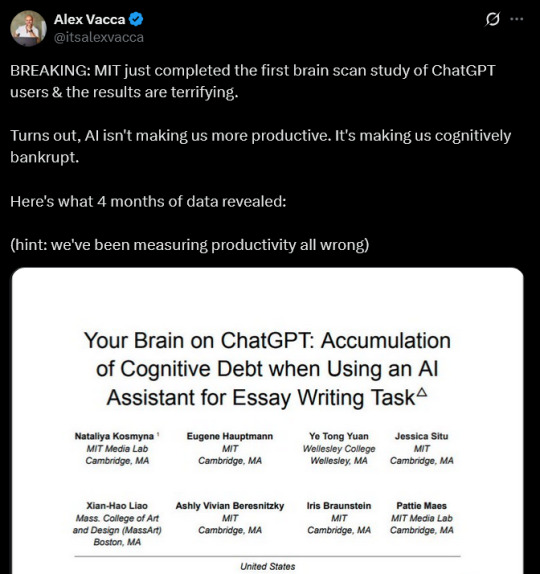Photo

Experience: Learning the right way to connect the dots.
187K notes
·
View notes
Video
956K notes
·
View notes
Video
Tony Hawk lands a 900 at age 48!
🐐🐐🐐
463K notes
·
View notes
Text
Sometimes it feels like you've lived your whole life in a house that's always a little bit on fire. Like it's usually just in one room and you make sure to wet the walls around it so it doesn't spread and that usually works. You were expected to take more responsibility over fire containment when you were like seven because it's not like you can expect your parents to always be 100% on guard about making sure the whole house doesn't catch fire, and you figure that's just how things are like.
And sometimes as a kid you visit your friends' homes and some of then whisper to you - grimacing with embarrassment - about how they're not supposed to tell anyone this, but there's a whole room in their house that's currently on fire. And you're like yeah it's ok I'm not supposed to tell people about the way our house is a little bit on fire all the time, too. And then you visit some other friend's house and there's no trace of fire anywhere, and you think "wow, these people are really good at hiding their house fire."
And one day you show up to work like "hey sorry I'm late, I forgot to wet the walls before going to bed last night and my whole house burned down", and you're startled by the way people react, acting like that must be the worst thing that has ever happened to you. And you're just like "chill, it's been years since the last time this happened, and it wasn't even that bad this time", and that just makes people more shocked, acting like that's the weirdest and most concerning thing they've ever heard anyone say, which only confuses you more.
And then someone tries to explain to you that people aren't supposed to have an ongoing house fire. Most people actually never experience a house fire in their lives. Like not even once. Not even a little bit. The normal amount of having your house be currently on fire is zero.
28K notes
·
View notes
Text
if we could speak with lobsters and understand each other I think they might be able to share some really good wisdom as such a long-lived species.
but then I realized. the problem with such a plan
7K notes
·
View notes
Text
not siobhan fully breaking brennan by solving this riddle over the course of mere minutes
bonus:



8K notes
·
View notes
Text
playing undertale at last after somehow unintentionally avoiding all major spoilers for my entire online life (UT came out two years before I first used social media) and oh my god. this game is crazycool. lifechanging. I kind of want that gay robot
10K notes
·
View notes
Text
Any conspiracy theory about people going missing in National Parks is automatically silly to me. Like "Why are National Parks such a hotbed of disappearances???" because they're full of idiots. You've got thousands of people who've never pissed outdoors in their life wandering around the woods/desert/mountain with zero experience and zero gear and zero understanding that this place can kill them. You don't see as many disappearances in wild areas because people don't go to them unless they have some background knowledge. Whereas you get tour buses full of old folks and suburban families shuttling people into National Parks 365 days a year. If you took the same amount of buffoons and dropped them in the actual wilderness the disappearances would be significantly higher than at the parks. Use your brain.
116K notes
·
View notes
Text
the tiktok itself is funny but i’m deeply obsessed with this dog





20K notes
·
View notes
Note
I was at the liberty museum in Philadelphia and saw this next to a stairwell

Official ominous sign
21K notes
·
View notes
Text
A story within a story where a mother sits her rowdy children down and tells them a story about a the world's sweetest, kindest mother who never lost her temper, never cursed and never yelled at her children, no matter how rowdy they could get. She would only gently, kindly told them to not do the dangerous things. One day she sweetly, kindly told her children to not go play at the riverbank, because it's dangerous and they might slip on the rocks, fall into the water, and die. Her children do not listen. They go play at the riverbank, where they slip on the rocks, fall into the water, and die.
And the sweet perfect mother of the story comes to the riverbank, sees that all her children drowned, and starts crying so bitterly that angels overhear her, and the angels say to each other, "she does not deserve this, this woman has never done anything wrong in her life, this should not have happened to her", and feeling great pity for her, bring her children back to life, and after that they always listened to their mother and lived happily ever after.
And the storyteller's children, who at this point are familiar with the concept that these stories are supposed to have some sort of a moral or lesson in them, interject to point out that their mother hasn't always done everything perfectly, she isn't always sweet, curses a lot, and as a matter of fact loses her shit at her kids all the time. She isn't like the mother of the story at all.
And their mother agrees: Her children are correct. She is not a perfect mother who has never done anything wrong. Angels will not have pity on her, and they will not bring her little shits back to life if they go to the river and die. So they better fucking not go get themselves killed in the first place.
55K notes
·
View notes
Text
resources for learning Japanese
I'm just making this post because someone asked me! This is stuff I've used and liked; it's not comprehensive by any means. For every resource I enjoy, I know a bunch of Japanese learners who managed to reach a high level of proficiency without using it.
First:
The person who messaged me mentioned motivation. I'm gonna play devil's advocate for a quick sec, so bear with me. Japanese, for native speakers of English who do not know any languages similar to Japanese, is really time-consuming to learn. I am teaching Japanese to a student rn, and I just had a conference with their parents in which I straightforwardly said: In the time it takes your child to learn Japanese, they could probably have learned Spanish, French, how to sail, and a bit of carpentry instead. I'm personally learning Japanese for a lot of different reasons: I want to live in a country where I can afford health care and rent; I love Japanese literature and feel intellectually stilted without access to it; lots of my homies speak Japanese; etc. But there are real trade-offs, and I have sometimes wondered what my life would be if I'd gotten super into Dutch or computer programming or moss instead. It's worth thinking about whether the investment is worth it for you, and taking the time to write out why you're doing this.
The Resources
Grammar
A very nice guy named Tae Kim wrote a perfectly good textbook on basic Japanese grammar that he shares with folks for free (https://guidetojapanese.org/learn/grammar).
Bunpro.jp: Bunpro is THE BEST!!!!! Really thorough, logical grammar explanations; they routinely clarify stuff for me that I've never fully understood before. In addition to explaining the grammar, they have tons of example sentences, most of which have audio tracks with recordings made by professional Japanese voice actors. AND you can add the grammar points you're learning to a flashcard desk and practice that way. Bunpro doesn't just improve grammar, but it really improves your speaking and writing skills as well imo; something about the way the flashcards force me to think really works on my active language skills.
GameGengo is a super cool YouTube channel where one guy explains grammar points while showing you tons of examples from real video games. https://www.youtube.com/@GameGengo
JapaneseAmmoWithMisa is another great YouTube channel where a native speaker explains a lot of stuff that I otherwise don't encounter in textbooks.
Kanji
I like WaniKani and think it's been the best thing for me in terms of knowing how to read kanji combinations that are kind of "weird," unusual, rare, etc. However, it took me a long time to realize that WaniKani really focuses on passive reading skills and not writing at all, so I do recommend practicing writing on your own.


I didn't own a kanji dictionary for years, but I've found them pretty necessary since I started focusing on my writing. Both of the above are equally good imo (the left is probably more readily available in Japan; the right is cheaper in the US). They both put the kanji in a logical sequence, from common to uncommon, and then have useful lists of frequent kanji combinations, tell you the stroke order, etc.
Listening
I really like FluentU, which shows you clips from native materials like movies, shows, commercials, interviews, etc., and then teaches you the vocab you heard, quizzes you on it, and shows you the video again so that you can see how much more you can understand. It's a little expensive to use, though (DO wait for their sales, which happen frequently), and you can definitely find a lot of free stuff to listen to online.
I love JFF Theatre, which has recently released movies from Japan, completely free to watch:
They used to only be allowed to stream movies for one month every year, and now they stream different stuff year-round, which is really cool. They usually have about 6 different movies at a time.
Textbooks
The Shin Kanzen Master textbook series, which is based on JLPT levels, is known for being pretty hard but is also v useful, especially if you're trying to pass the JLPT. The vocab textbooks are cool when you're N2 and above because they teach you tons of nuance between synonyms of words.
Misc
You can follow cool Japanese learners on Tumblr like @tokidokitokyo, @corvid-language-library, and @epivanosilon (and tons of other cool folks!!)
There's a fun monthly book club on Discord that's probably good for N2+ folks: https://www.tumblr.com/tokidokitokyo/785027373105020929/seitokais-june-english-book-club
Ruby Gagotoku on Instagram and Substack makes amazing posts on learning Japanese (she is N1+ in terms of reading), and she's really inspiring to me because she taught herself to read Japanese books while never having actually been to Japan. If you follow her, you can definitely find a lot of resources, communities online, and homies to learn with: https://www.instagram.com/rubygagotoku, https://rubygagotoku.substack.com/
Literally yesterday I found the KuLA app (くずし字学習支援アプリKuLA), which teaches you the basics of how to read kuzushiji (pre-modern Japanese script) in a cute way. I love how the little bug-sensei starts off so optimistic but then freaks out when explaining how hard it is to read pre-modern texts lol:


And remember: There's no shame in learning Spanish, French, sailing, and carpentry instead of this beast of a language that has uprooted my life multiple times and has made me go through probably 40,000 flashcards in the last decade lollllll ganbatte
116 notes
·
View notes




